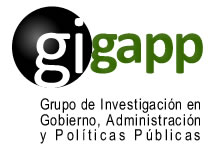The ethical orientations of journalists within the journalistic culture of Ecuador
Abstract
This article presents the results related to the ethical values of the Ecuadorian journalists obtained from the Culture Journalistic Project of Ecuador (CPE). The main objective of this study is to determine the traditional and common ethical guidelines shared by the interviewees, since these principles define the responsibility, decisions, autonomy and professional practice of journalists. Professional ethics is one of the main factors that determine the level of professionalism of journalists and the professionalization of journalism; the regulation of the media market -based on the economic and business model of the media-; the self-regulation of the media -deontological codes-; State interventionism and the involvement of civil society in the communication process -participation and access to citizen information-. In this study, 31 in-depth interviews were conducted with active journalists from 6 national media and a contextual analysis of the journalistic culture of Ecuador. The results show that the journalists interviewed in Ecuador are classified within the journalistic context, according to the perspectives proposed by Plaisance (2005) and Hanitzsch (2007) based on ethical ideologies, as eminently absolutist, tending to the situationism and to a lesser extent to the exceptionism.
Downloads
Copyright (c) 2017 Martín Oller, Palmira Chavero, Patricia Ceballos, Julia Carrillo

This work is licensed under a Creative Commons Attribution-NonCommercial-ShareAlike 4.0 International License.
Those authors who have publications with this journal, accept the following terms:
a. Authors will retain their copyrights and guarantee the journal the right of first publication of their work, which will be simultaneously subject to the Creative Commons Attribution-NonCommercial-ShareAlike 4.0 International (CC BY-NC-SA Recognition License). 4.0) that allows third parties to share the work as long as its author and its first publication are indicated in this journal.
Under this open access license, readers (users) can:
- Share — copy and redistribute the material in any medium or format
- Adapt — remix, transform, and build upon the material
Under the following terms:
-
Attribution — Users must give appropriate credit, provide a link to the license, and indicate if changes were made. You may do so in any reasonable manner, but not in any way that suggests the licensor endorses you or your use.
-
NonCommercial — Users may not use the material for commercial purposes.
-
ShareAlike — If remix, transform, or build upon the material, users must distribute your contributions under the same license as the original.
- No additional restrictions — Users may not apply legal terms or technological measures that legally restrict others from doing anything the license permits.
b. Authors may adopt other non-exclusive license agreements for the distribution of the version of the published work (eg: deposit it in an institutional telematic archive or publish it in a monographic volume) provided that the initial publication in this journal is indicated.
c. Authors are allowed and recommended to disseminate their work through the Internet (e.g. in institutional telematic files or on their website) before and during the submission process, which can lead to interesting exchanges and increase citations of the published work. (See The effects of open access).



